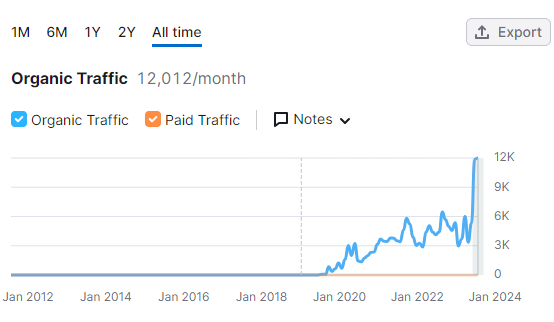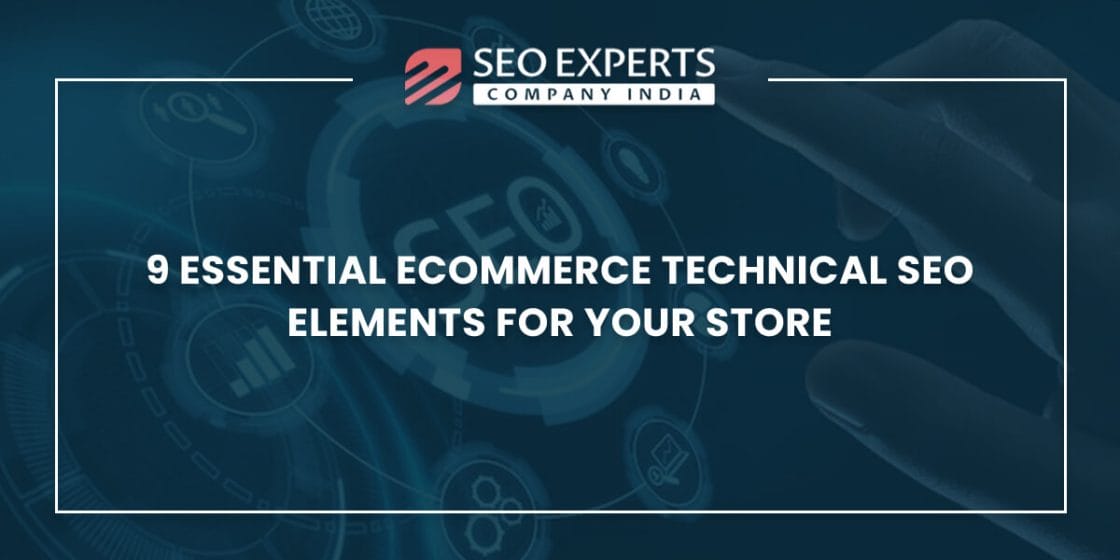Search intent is the reason or objective behind a particular query that a user puts into the search engine. Understanding the search intent is crucial if you want your content, products, or services to reach the right audience.
Having navigated the SEO algorithms for over a decade, we have closely evaluated the significance of user search intent and their impact on keywords. In this article, we share the insights and experiences accumulated through years of research, experiments, and collaboration with our clients.
Let’s dive into the article to learn more about this crucial SEO factor– user search intent to make your online presence resonate with your target audience.
Digging Deeper into the Role of Search Intent
Ever wondered how Google guides you to the exact information you’re seeking? How does Google really get what you mean? That’s where user search intent combines with the keywords, revealing how search engines comprehend and respond to your queries.
Take the example of an individual looking to buy a laptop. Now, if the user enters a keyword such as “latest Windows laptop,” “Windows laptop vs. Apple laptop,” or “new feature-rich laptop,” it is highly probable that the individual is still evaluating the options or planning to buy a laptop.
However, if a user enters a query such as:
“Laptops under $600,”
“Discount rate laptops,”
“Buy a laptop under $700,”
or
“Second-hand laptops under $500.”
In such situations, the user is clearly in the last stage of the buying journey and is likely to purchase right away.
Therefore, to appear in search results, make sure to research what your audience wants and be the solution to their questions and needs. It’s about connecting with them, understanding their searches, and positioning yourself as their go-to source. So, take the time to learn about your audience, what they’re looking for, and how you can be the answer they’re searching for.
Four Different Types of Keywords Based on Search Intent
Based on the search intent, keywords can be categorized into the following types:
Informational Keywords
Informational keywords are the ones that users type into search engines to gain knowledge and find solutions about a particular subject or topic. These keywords attract a lot of searches but may not lead to as many website conversions. Why? Because people searching for these keywords are only interested in seeking answers to their questions rather than purchasing or comparing products.
To make the most of these informational keywords, it’s essential to concentrate on delivering precise and thorough information. Instead of pushing promotional content, aim to offer valuable insights and answers that cater to the user’s informational needs. By focusing on being a helpful resource, you can better connect with users and establish trust, even if they’re not ready to buy right away.
To give you an example, we teamed up with a client who runs a wellness blog to boost their visibility in search engines. Our strategy involved focusing on topics that not only answered common queries but also resonated with the audience. Our team performed a thorough keyword research and targeted keywords like the ‘benefits of multivitamins for women,’ ‘understanding multivitamin deficiency,’ ‘best time to take your multivitamins,’ etc. By doing so, we not only helped the client establish domain authority in the search engines but also gained the trust of both the audience and Google. This, in turn, led to a surge in organic traffic to their website.
Later, when our client launched ‘multivitamin supplements,’ the groundwork paid off. Thanks to the informative content, the website already had a good audience and high-quality organic traffic. We strategically added calls-to-action to the ranking articles to further connect the target audience with the new product line. This strategy contributed to a significant increase in conversions.

Navigational Keywords
As the word describes, navigational keywords act like online signposts, guiding users directly to a specific webpage, product, or location. So, these keywords are associated with particular brands, services, or products. For example, when a user puts “nike.com” or “nike panda dunks” in the search engine, it indicates that the user has a clear destination in mind and uses navigational keywords to quickly navigate to the desired site.
To put it simply, it’s like using Google Maps or Apple Maps for directions – you input where you want to go, and voila, you’re there!
Strategically using navigational keywords can help your website attract good organic traffic if you already have an established brand. We recommend you to include a few smart techniques in your SEO strategy. These tips will not only enhance your online visibility but also ensure you’re reaching the right audience for your brand or product.
- Focus on your brand name and variations of it. Try to naturally include your brand name in your website’s title tags, meta descriptions, and headers.
- Optimize your website for specific products or service names. For instance, take a cue from popular brands like Nike, which optimizes for “Nike Airforce,” or Adidas for “Adidas Samba.”
- If you are a local business, we advise you to include location-based navigational keywords to target the local audience.
- One important thing you should ensure is to check whether your brand is spelled correctly over each platform. We have observed that this seemingly minor detail can substantially impact brand credibility and search engine rankings.
- Consider incorporating PPC advertising for branded keywords to make your website appear in the top results.
Commercial Keywords
Understanding commercial keywords is crucial for businesses aiming to connect with potential customers. These keywords are the phrases that users put into the search engines to research or compare products or services before making a purchase.
For instance, if you want to buy a sports car, you will probably ask Google something like “Top 10 sports cars to buy in the (year)” or “Which car is better between Porsche 911 and Nissan GT-R.” These are core examples of long-tail commercial keywords.
Some other examples of commercial keywords include “top-rated,” “reviews,” “affordable,” “compare,” etc.
Recognizing the significance of these keywords is essential because they reveal a user’s genuine interest in a particular product or service. These keywords help attract the right audience, people who are just one step behind making a transaction. We believe that getting your commercial keywords right can increase your conversions and help your website increase sales.
To optimize your strategy, we suggest you focus on long-tail keywords, which are more specific and targeted and can help attract a more qualified audience.
Additionally, if your business serves a specific locality, don’t overlook the potential of local commercial keywords. We believe that these terms significantly enhance your visibility and connection with potential customers in your area.
For example, we once worked with a client who wanted to boost their sales, and we helped them do just that by smartly optimizing their business for commercial keywords.
Let’s make it relatable for your business. Picture this: You have a bakery in New York, and you want to attract more customers. Well, we can help you with that! Instead of going for generic keywords, think about what people in your area might be searching for. Try to think from a customer’s point of view. They might search for local keywords like ‘Best Custom Wedding Cakes in NYC’ or ‘Top 10 Unique Cake Designs for Birthday Celebrations.’ When you focus on these local commercial keywords, your bakery has a better chance of popping up when someone nearby is gathering options for a special cake. This way, you draw in customers who are more likely to step into your bakery or place an order for delivery right in your neighborhood. It’s like making sure your business shows up right when and where people are looking for what you offer!”
Additional tip: Remember to regularly review and update keyword strategy because user behavior and search trends evolve over time. Therefore, keep adjusting your strategy and keywords accordingly for the best results.
Transactional Keywords
Transactional keywords, also called buyer keywords, are search terms that people put into search engines when they are ready to make a purchase. It is important to target these keywords because these are the ones that your potential customers are typing into Google in a quest to find your business.
For instance, phrases like “buy makeup products” or “shop snug boots” indicate a clear intention of the user to make a purchase. Recognizing this, it’s essential to align your website content with these transactional keywords to effectively reach your target audience.
Here’s a piece of advice that we would like to share with our readers. While targeting the transactional keywords, tailor the transactional keywords to match the language and preferences of your target audience (like our team does).
To give you an example, we once assisted a client dealing in “handmade leather shoes,” which had an online store with underwhelming sales. In response, we focused on optimizing the website for transactional keywords. By conducting thorough keyword research, we identified specific, customer-friendly transactional keywords like “Purchase custom leather shoes online,” “Order premium crafted leather shoes” and strategically placed these keywords on product pages. We further enhanced call-to-action buttons. Although the process took some time, the results were remarkable. The website’s visibility improved, attracting more targeted traffic, and online sales saw a significant boost.
This approach emphasizes the importance of aligning your content with transactional keywords and understanding your audience’s language to drive positive results for your business.
Wrapping Up
To wrap up, understanding user search intent is extremely important for a successful SEO strategy. It’s not only about targeting the right keywords but aligning them with what users are actively seeking. So, if you want to hit the bullseye, then you must tailor your keywords to match user needs and regularly update your keyword strategy based on ever-changing trends.
If you have any questions or need further guidance, feel free to reach out to our team. We’re here to help!
Frequently Asked Questions
1. How can one find “buying keywords” variations on Google?
The best method to find the variations of any type of keyword people search on Google is to use the Google auto-suggest feature and look at the “People Also Ask “section.
2. What are the four types of keywords that differentiate from each other based on the “intent” factor?
Based on intent, one can segregate the keywords into the following types:
- Navigational
- Informational
- Commercial
- Transactional keywords.
3. What are the universally acknowledged stages of the buying journey?
These are the universally accepted stages of the customer journey that are widely acknowledged and accepted:
- Becoming aware of a problem or desire
- Stage of consideration
- Interest
- Decisions
4. What is keyword intent, and can you tell me more about buyer intent keywords?
“Intent” refers to the purpose that searchers have when they enter a keyword into Google or other search engines. For example, if a user searches the keyword “Is chocolate good for health,” a plethora of health-related websites will appear. Here, the intent is that the user might be looking to give up on chocolate.
Buyer’s intent keywords are those in which it is evident that the buyer is about to purchase a product or service and only needs to decide from whom they will purchase it.
Such keywords are excellent for generating high conversions, especially if you have created and implemented a well-researched strategy for your keywords and content concerning all stages of the customer buying journey. By getting ranked for keywords that signify buying intent, you can certainly put your conversions into top gear.
5. Can you share some examples of buying or transactional keywords?
Here are a few examples of such keywords:
“Buy leather shoes,” “House for sale in New York, “Laptops on discount, “Buy vegan leather fabric near me.” It is easy to identify keyword strings with buying intent as they generally use words like “buy,” “shop”, “purchase,” “sale”, “offer”, etc.





